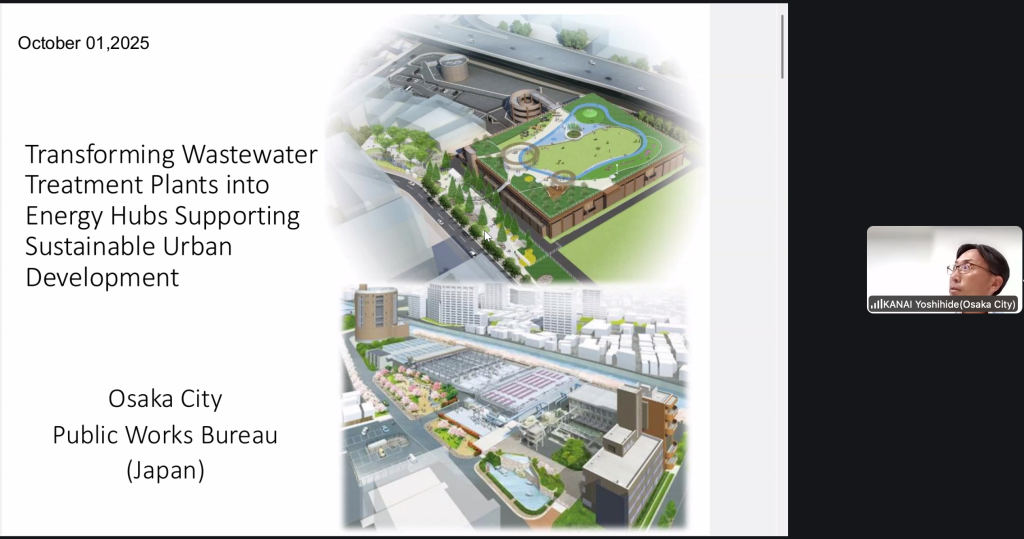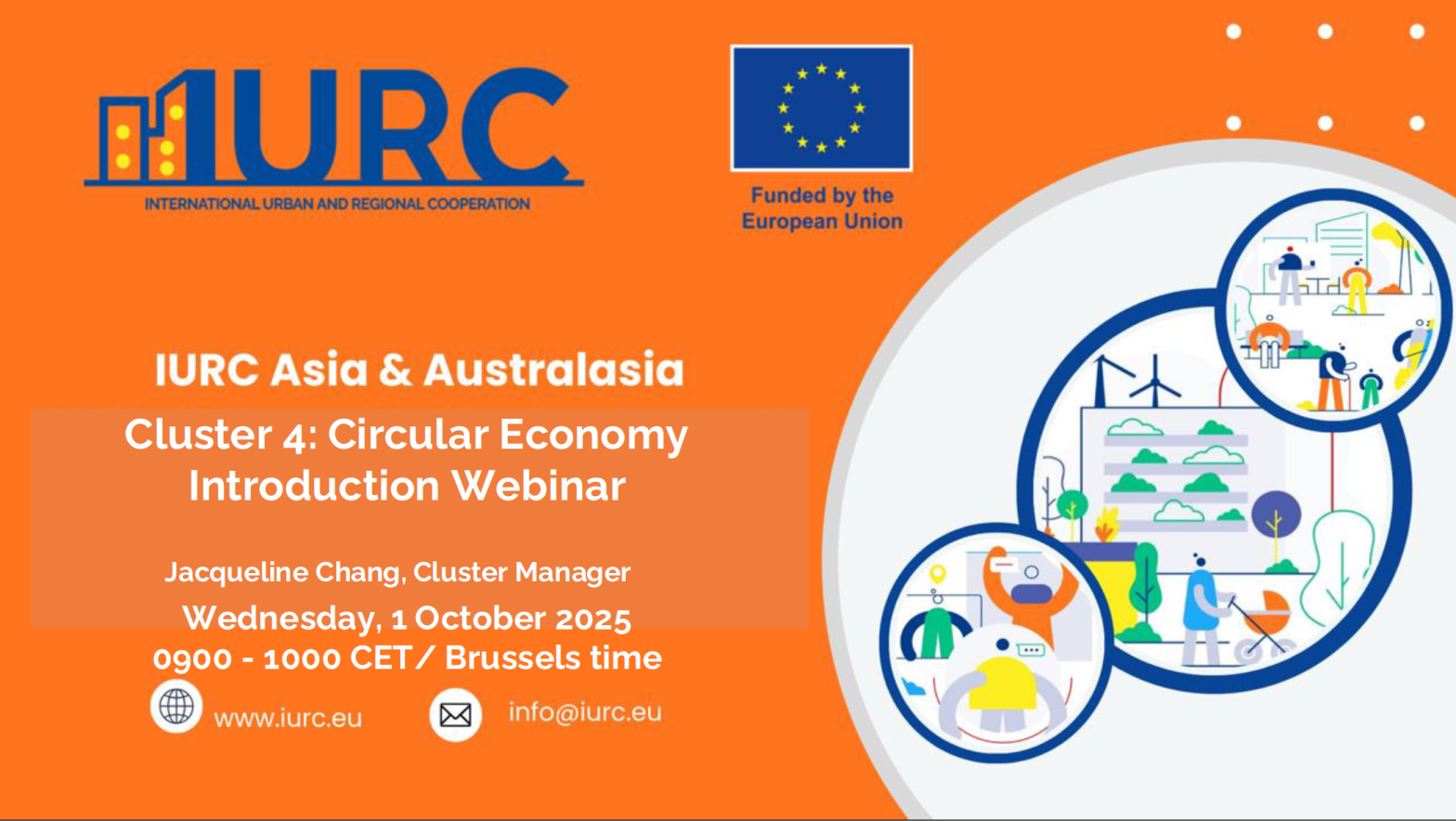On 1 October 2025, the International Urban and Regional Cooperation (IURC) Asia & Australasia programme launched its Circular Economy Thematic Cluster (Cluster 4) with an introductory webinar attended by 59 participants from 17 cities in 10 countries. The session marked the beginning of a global exchange on how cities can rethink waste, food systems, and resource use while piloting innovative solutions to accelerate the transition to more sustainable urban economies.
Setting the Scene: Cities as Circular Leaders
The cluster was introduced by Jacqueline Chang, who outlined its objectives: to connect cities across Europe, Asia, and Australasia in a structured exchange of best practices on circular economy strategies, from food systems to industrial symbiosis. She emphasized the crucial role of city governments as promoters, facilitators, and enablers of change.
The cluster will be structured into four webinar sessions leading up to in-person exchanges at the Smart City Expo World Congress in Barcelona (4–6 November 2025). Outputs will include a toolkit and a circular economy cluster report synthesizing city experiences, to be shared with all 17 participating cities by December 2025.
To strengthen ongoing dialogue, the session also launched the IURC Circular Economy Community Group on WhatsApp, offering a dedicated channel for city practitioners to exchange resources, announce events, and form sub-topic groups for long-term cooperation.
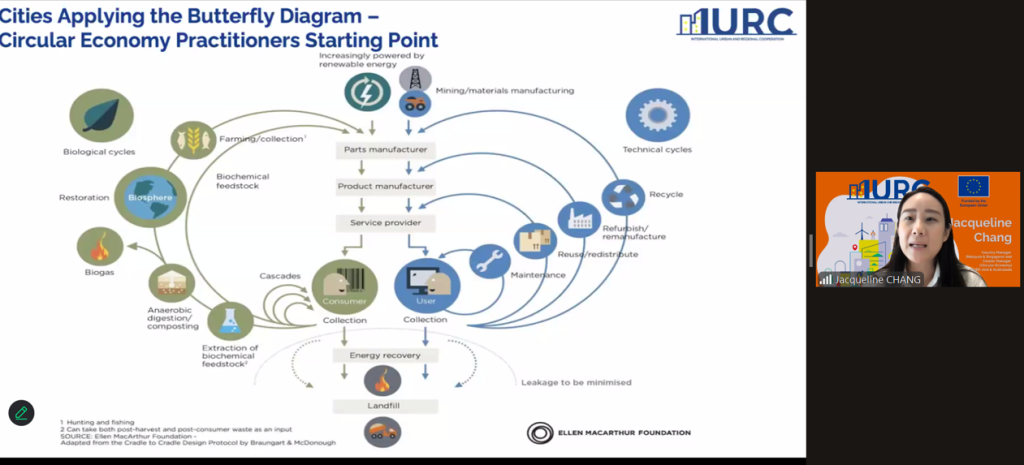
Milan: Leading on Urban Food Policy
The first city presentation came from Milan, highlighting its role as the host of the Urban Food Policy Pact (MUFPP), now supported by more than 330 mayors worldwide. Milan shared examples of local initiatives, including its school meal programme serving 83,000 meals daily, and international collaborations with Asian cities such as Bangkok, Chiang Mai, and Seberang Perai.
The city underscored the importance of circular food systems, food waste prevention, and agricultural innovation. It invited other IURC cities to join the MUFPP sub-team on food policy, noting that membership requires only a letter of commitment signed by the Mayor.
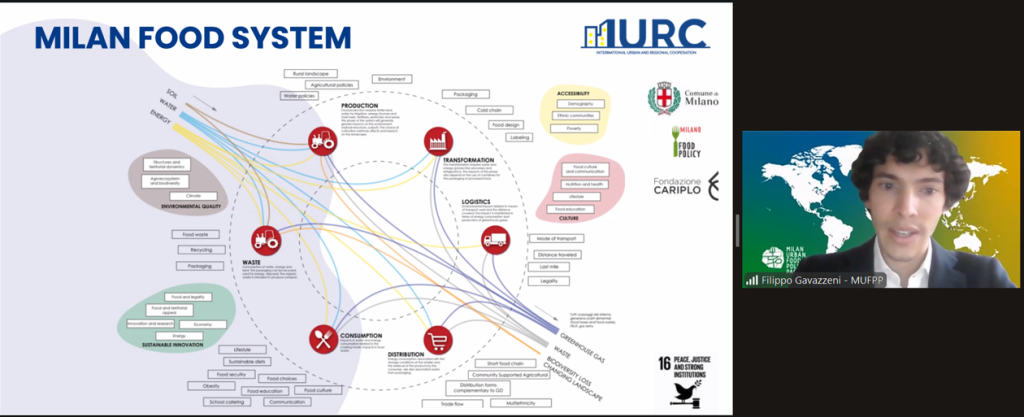
Iskandar Malaysia: From Recycling to Circular Economy Parks
Iskandar Malaysia, the country’s first economic corridor and a key partner in the Johor–Singapore Special Economic Zone, showcased its wide-ranging initiatives. These include:
- The Iskandar Malaysia Eco-Life Challenge (IMELC) – a school-based education programme now expanded from 23 to 909 schools.
- Circular Economy Park development to pilot industrial-scale recycling and resource recovery.
- Community awareness campaigns on food waste, recycling, and sustainable consumption.
These efforts have led to measurable impacts, including reduced energy and water consumption, higher incomes from recycling projects, and expanded stakeholder participation. Plans are underway to pilot extended producer responsibility (EPR) schemes for plastics and packaging in collaboration with Singapore.
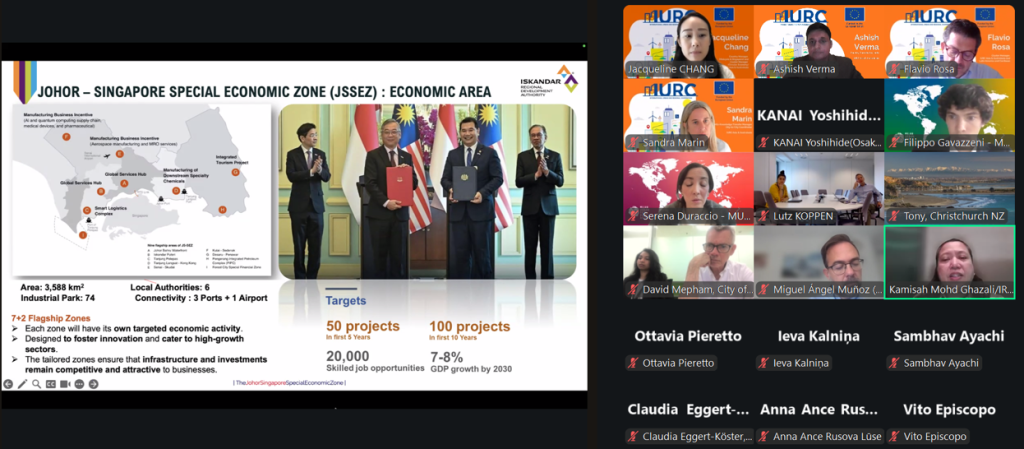
Osaka Prefecture: Wastewater as an Energy Resource
Osaka Prefecture, Japan presented its pioneering work on transforming wastewater treatment plants into energy hubs for sustainable urban development. With 12 wastewater plants in operation, the city has:
- Reduced greenhouse gas emissions by 21.4% between 2013 and 2021 through energy-saving equipment and digester gas power generation.
- Implemented resource recovery practices, such as using sludge by-products in construction materials and fuel for power generation.
- Enhanced waterfront areas by reusing treated water to create artificial streams.
The city called for international collaboration on biomass energy projects, emission reductions, and innovative technologies for carbon-neutral wastewater management.
